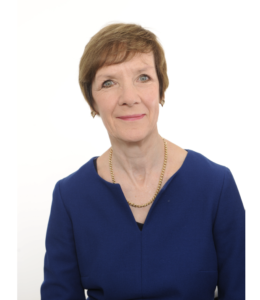Dr Caroline Shuldham OBE, Independent Consultant and Non-Executive Director @CMShuldham
Establishing a realistic and accurate budget is one of the foundations when planning projects or research as researchers need to identify the costs of their proposal. It is an intrinsic part of developing a grant application to secure funding, which as the NIHR states ‘can be difficult and time consuming’[1].
Once funded, researchers have to manage the budget through the life of the project and complete it within the specified time and money. Yet, in my experience, the financial aspects of the researcher’s role are not given as much prominence as they should be and novice researchers in particular sometimes lack experience.
Therefore we should give the process of identifying costs and budgetary management greater emphasis with training and ensure people know there is professional help from research design and finance colleagues. In some circumstances help is clearly available. For example the Research Design Service provides help to researchers making funding applications for submission to their ‘research programmes and national, peer-reviewed funding competitions for applied health or social care research’[2]. But for more local applications, perhaps smaller projects by less experienced researchers, this expertise is not available and applicants may have to look elsewhere for support.
Many financial skills overlap with other research skills. Analysis, decision-making, planning, risk management and identifying and resolving problems come to mind. Managing the money involves quantitative data, just as some of the outcome measures in a study, and spreadsheets. However it also entails specific skills such as understanding the structure of a budget, reading financial statements and developing accurate costs.
It takes skill to work out the resources needed to complete a project and it can be tempting to overreach what can be achieved in a given timeframe to meet the funder’s budget ceiling. But when I look at research training programmes, financial education is not always immediately apparent, though it can be intrinsic to modules such as this one from the University of Birmingham on project management and research governance which includes ‘finance’[3].
In my experience, common pitfalls when costing a project are to use the salary figure without taking account of the additional cost that an employer incurs such as for national insurance, not getting an accurate price for non-pay items, for example equipment, travel costs, dissemination, and having a weak (or no) formula for ‘overheads’. These can generally be avoided by seeking the advice of an experienced researcher to determine what is required and a finance colleague to calculate and structure the budget. We should encourage nurses to do this early in their research career and give it more prominence.
During implementation of the project it is worth continuing to work with these people to manage and monitor the budget on an on-going basis. The ‘numbers’ are vital. The researcher needs to know what each component costs, how much was allocated and track expenditure. Monthly budget statements have to be read so progress can be monitored. Researchers are accountable for this aspect of research management as much as they are for all other aspects of a study and managing the budget is a key to successful research. Decisions about expenditure and when to ‘cut one’s cloth’ are needed. These should be based on the evidence, from financial data, just as one would use the facts for any other area of evidence based health care, hence financial acumen should be given more prominence in the research process.
[1] https://www.nihr.ac.uk/explore-nihr/support/research-design-service.htm (Accessed 20/01/2020)
[2] https://www.nihr.ac.uk/explore-nihr/support/research-design-service.htm (Accessed 20/01/2020)
[3] https://www.birmingham.ac.uk/postgraduate/courses/combined/med/clinical-health-research.aspx (Accessed 20/01/2020)
